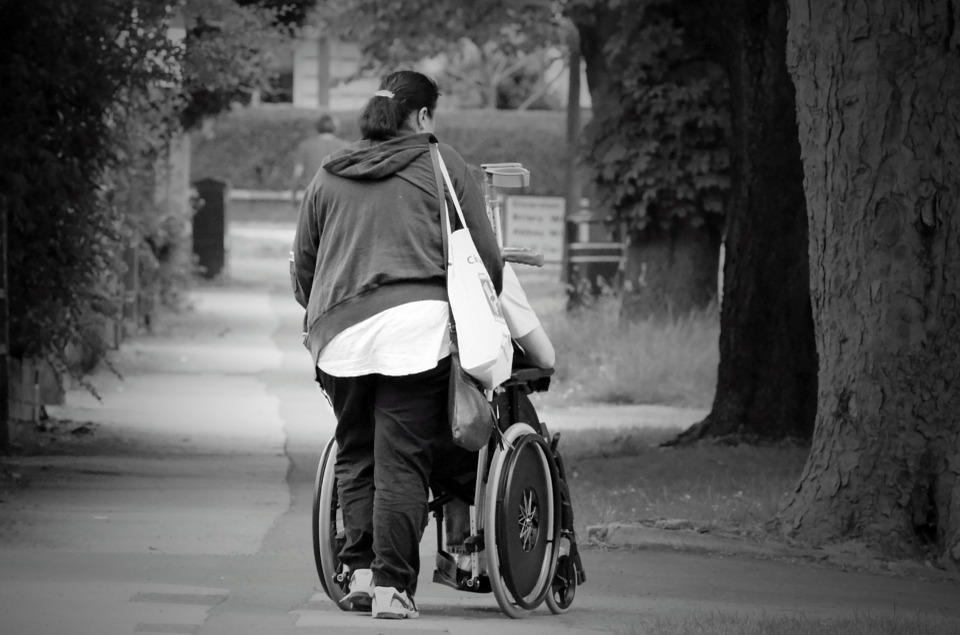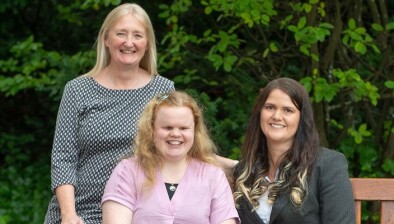Lack of suitable housing has detrimental impact on mental health of disabled home-seekers, report finds
Disabled home-seekers are experiencing significant emotional distress due to a lack of suitable housing, according to leading housing experts.

An 18-month-long study led by researchers at the University of Stirling, Housing Options Scotland and Horizon Housing Association observed the effectiveness of allocations and lettings practices for accessible and adapted social housing in Scotland.
Of the 28 disabled home-seekers based in three local authority areas who participated in the research, the majority had received offers for inappropriate housing or no offers at all during the course of the study.
The co-production approach adopted by the University of Stirling researchers Dianne Theakstone and Julia Lawrence allowed disabled people to be closely involved in the study.
In an interview with one of the female participants seeking more suitable housing, the interviewee detailed that despite the installation of a stair-lift in her current home, she had to make eight consecutive transfers between a chair, wheelchair, stair-lift and toilet to use the bathroom.
Some interviewees also argued that the importance of access to a garden should be recognised by housing allocation systems to ensure emotional wellbeing. They also argued that the needs of the main applicant should not be the only considerations taken into account. Rather, they believed that the needs of the other occupants within the home should be recognised.
Leader of the research team, Professor Isobel Anderson, said: “Disabled people’s extended lived experience of inappropriate housing, while waiting for a more accessible home, clearly causes considerable physical and mental harm. The key findings highlighted a proactive approach from local housing providers, yet distance between their aspirations and the experiences of disabled people.”
She added: “Disabled people and their families should have equal housing opportunities and the right to an accessible home in the community that ensures and protects their human rights. This academically rigorous report gives all stakeholders the opportunity and evidence to shape lettings policy and practice to optimise effectiveness in matching disabled people to suitable homes, as well as increasing our stock of accessible housing.”
Supported by a research grant from the Disability Research into Independent Living and Learning (DRILL) programme, this Match Me study also uncovered crucial evidence that the assessment of the suitability of a property should not only look at the access and internal features of the home, but should also consider the accessibility of the external environment and the opportunities for the applicant to maintain local support networks.
The researcher’s final report offers practical advice and policy recommendations to Registered Social Landlords (RSLs), local authorities, Scottish Government and the Scottish Housing Regulator linked to housing allocations, adaptations, design and new supply.
Bill Scott from DRILL said: “Previous research has shown that inappropriate housing causes harm to physical and mental health and this research showed how the stress of the allocations processes and waiting times experienced by the participants could also be harmful to their wellbeing.”
Horizon Housing Association’s interim managing director, Isla Gray, said: “We are grateful for the grant support of DRILL, which has allowed us to build on our scoping study, Matching Up, resulting in this report. The report provides substantial insight into the experiences of disabled housing applicants and practice improvements that can address the inequality of housing opportunities and outcomes that persist for too many disabled households.”
She added: “The findings will be useful for government, the Scottish Housing Regulator and to housing and service providers – as well as for health and social care providers working with disabled people.”
Chief executive of Housing Options Scotland, Moira Bayne, said: “Serving over 600 disabled households in need each year, we see first-hand the impacts of effective allocations policy and practice, but also what happens where services have not been accessibly designed and are insufficiently flexible to deliver the individualised solutions often needed.
“We warmly welcome this report as an important resource for RSLs, local authorities and Scottish Government, who are working to increase housing supply for disabled people.”






